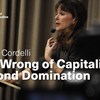iii
Non Ideal Social Ontology III
PROGRAM Printable program as pdf-file. 11th of June: Implicit bias Room: Meeting room, Institute for Futures Studies, Holländargatan 13, Stockholm 09.00 Welcome 09.15–10.30 Robin Zheng (Yale-NUS College) “Re” 11.00–12.15 Åsa Burman (Stockholm University & Institute for Futures Studies) ””
Non Ideal Social Ontology III
By 'non-ideal social ontology', we have in mind social ontology that starts with difficult, complicated cases of immediate importance to social theory, rather than starting from simplified or abstractOur thinking is that just as critical philosophers of race such as Charles Mills have made a case for the importance of non-ideal political philosophy, non-ideal social ontology could play an important role in advancing emancipatory social theory. 09.00 Welcome 09.15–10.30 Robin Zheng (Yale-NUS College) “Responding to Bias: Oughts, Ideals, and Appraisals” 11.00–12.15 Åsa Burman (Stockholm University & Institute for Futures Studies) ”Collective responsibility for implicit bias” 12.15–13.30 Lunch 13.30–14.45 Katharina Berndt Rasmussen (Institute for Futures Studies) ”Implicit bias and discrimination” 15.15–16.30 Alex Madva (California State Polytechnic University), ”Responsibility for Interpreting Implicit Bias” 19.00 Workshop dinner 09.00–10.15 Rebecca Mason (University of San Francisco) ”Oppression and Incredulity” 10.30–11.45 Johan Brännmark (Malmö University) ”Institutions, Ideology, and Non-Ideal Social Ontology” 11.45–13.15 Lunch 13.15–14.30 Staffan Carlshamre (Stockholm University) ”Natural kinds, social kinds, mixed kinds” 14.45–16.00 Katharine Jenkins (University of Nottingham) ”Sex and gender, grounding and anchoring” Organized by Åsa Burman & Katharina Berndt Rasmussen. Sponsored by Jane and Dan Olsson Foundation, Institute for Futures Studies, and the Department of Philosophy, Stockholm University Questions? Please contact:
Raymond Boudon (1934-2013)
Revue française de sociologie, 2013/2 Vol. 54, p. I-III. Download Raymond Boudon (1934-2013).
Fertility decisions – simulation in an agent-based model (IFSIM)
2009. New frontiers in Microsimulation Modelling, Part III. Eds A Zaidi, A Harding, P Williamson. Ashgate.
Cultural systems
The Oxford Handbook of Cultural Evolution, red. Jamshid J. Tehrani et al. Abstract Many cultural phenomena cannot be understood by studying traits in isolation. Instead, they are embedded in webs of rel

Chiara Cordelli: The Wrong of Capitalism Beyond Domination
Political philosophy is witnessing a revival of critiques of capitalism. Against those who argue that capitalism is unjust because of (i) its distributive outcomes, (ii) the oppression of workers at t
Completed: Individual and collective responsibility for discrimination from implicit bias
The project aims to evaluate the ethical consequences, on an individual and collective level, of implicit bias that causes ethnic discrimination.
Challenges and Opportunities of International Migration for the EU, Its Member States, Neighboring Countries and Regions: A Policy Note
Institutet för Framtidsstudiers skriftserie: Framtidsstudier nr 12, 2004 While the EU is a wealthy and politically stable region with an aging and eventually shrinking population, neighboring countries

Claim-based distributive theories
The overarching purpose of this project is to present a framework for claim-based distributive theories. Since scarcity is a ubiquitous societal problem, the project has wide-reaching relevance for society.
Human Enhancement and Technological Uncertainty. Essays on the Promise and Peril of Emerging Technology
Doctoral thesis. KTH Royal Institute of Technology.ISBN 978-91 7595-341-0 Abstract Essay I explores brain machine interface (BMI) technologies. These make direct connection between the brain and a machi








